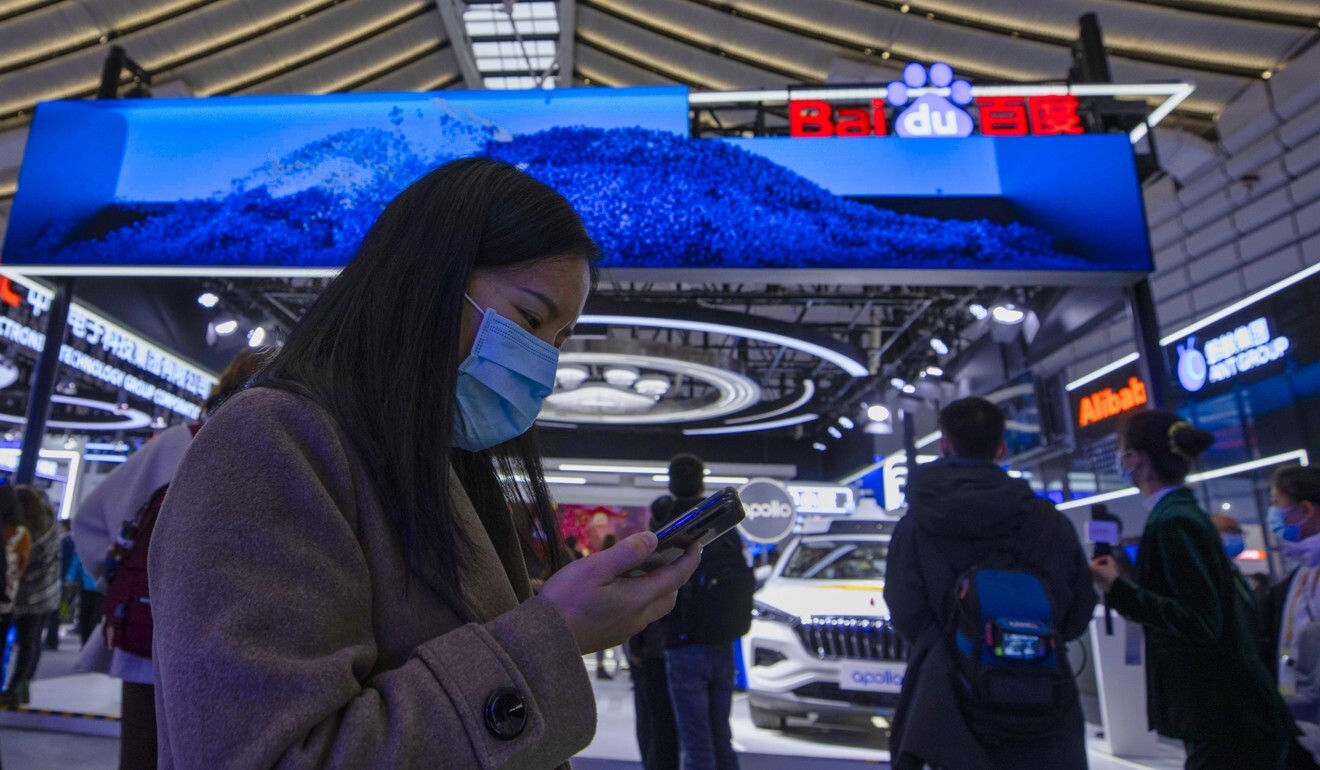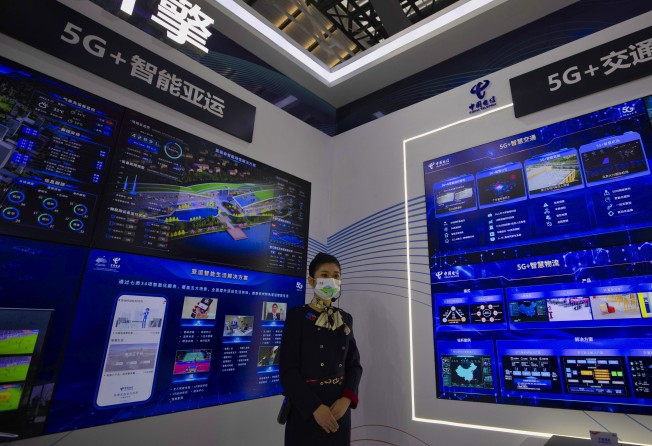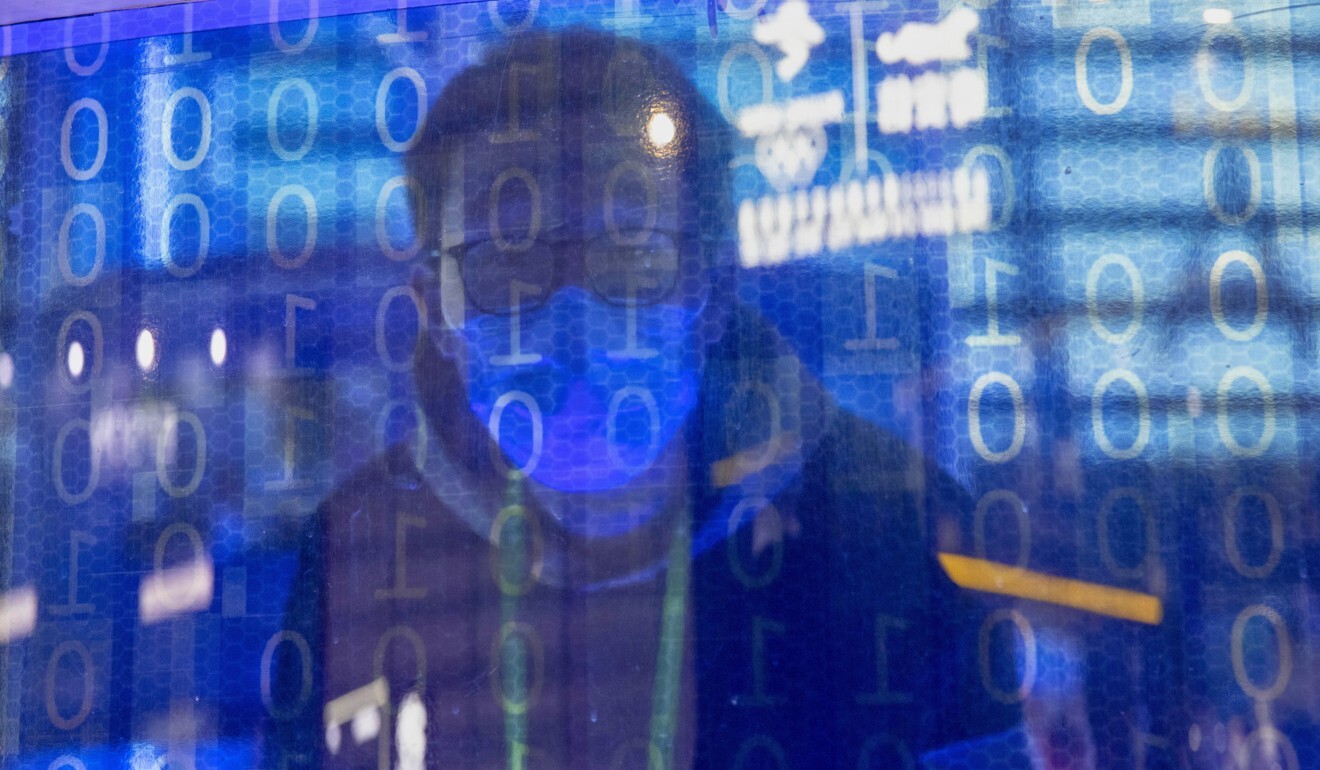
China’s state-run World Internet Conference sees ‘quietest’ year ever amid coronavirus pandemic
- Just over 130 companies take part in this year’s World Internet Conference, compared to more than 600 last year
- Coronavirus pandemic takes centre stage, with speakers praising China’s success in controlling the spread of the virus

China’s biggest annual internet conference saw its quietest year ever, according to some attendees, as the coronavirus pandemic stymied global participation and dominated the discussion at the event.
The 7th World Internet Conference (WIC), also known as the Wuzhen Summit after the northern town in Zhejiang province where it takes place, kicked off on Monday.
The state-run event, meant as a platform for global tech leaders to discuss global internet issues and policies, attracted top US names including Apple’s Tim Cook and Google’s Sundar Pichai in past years. But this year, the only senior speakers from non-Chinese tech companies were Qualcomm chief executive Steve Mollenkopf and Cisco chief executive Chuck Robbins, both of whom delivered their speeches via video link.

Several guests at the summit told the Post that this was the “quietest” Wuzhen Summit they had ever experienced. Just over 130 companies took part in the event this year, compared to more than 600 last year.
“The number of attendees is the fewest [that I have seen],” one industry expert, who said this was the fifth time he was attending the WIC, told the Post. “Many foreign guests are unable to come due to the pandemic,” added the expert, who declined to be named.
The coronavirus pandemic took centre stage at this year’s WIC, with the speakers, mostly from Chinese government departments and internet companies, focusing on their achievements in using digital technology to help domestic sectors recover from the pandemic and praising China’s success in controlling the spread of the virus.
In a speech broadcast at the summit, veteran Chinese infectious disease expert Zhong Nanshan said the international community “needs to join hands, abandon differences, and carry out higher, closer and more comprehensive cooperation in the fields of vaccine research and development, 5G medical care, and data sharing”.
Chinese companies including internet giant Tencent Holdings and delivery platform Meituan were presented with awards for “scientific and technological achievements”, such as enterprise collaboration apps and autonomous delivery solutions, in the fight against Covid-19.
“Under the decisive and scientific decision of the [Central Committee of the Chinese Communist Party] and the government, China took the lead in controlling the pandemic and achieved major strategic results,” said Li Zixue, chairman of Chinese telecoms giant ZTE at a WIC forum on Monday.
But several guests the Post spoke to said that they were disappointed that other important industry issues went unaddressed.

“It’s understandable that recovering from the pandemic is the most pressing issue globally, but I had expected the forum to discuss more issues regarding the current changing global dynamic,” said an attendee from Huawei Technologies who requested anonymity.
In the past year, the Trump administration has tightened its restrictions on Chinese tech companies, announcing plans to block Chinese-owned apps TikTok and WeChat in the US and cutting off telecoms giant Huawei’s access to crucial technology including semiconductors.
The US has also encouraged its European allies to purge Huawei’s equipment from their 5G networks, with some success. The UK put forward a new law on Tuesday to fine British telcos up to 10 per cent of turnover or 100,000 pounds (US$133,140) a day if they contravene a ban on using Huawei equipment.
Chinese tech companies are not only facing pressure internationally, but also in their home market. Earlier this month, the Chinese government released a draft antitrust guideline to rein in internet-based monopolies, signalling policymakers’ heightened concerns over the growing power, influence and risks of digital platforms and their market practices in the economy.
This came just a week after it surprisingly halted Ant Group’s record-breaking stock offering by throwing new microlending rules at the Jack Ma-controlled fintech company.
However, Alibaba Group Holding chairman and chief executive Daniel Zhang said at a forum on Monday that tighter policies and regulations were an expected part of the industry’s development.
“In the course of development, many new problems and challenges will certainly arise, which need to be managed by policies and regulations that keep pace with the times,” Zhang said. “Development and governance and regulation will always be mutually reinforcing and interdependent.”
(Alibaba is the parent company of the Post.)
The Huawei participant, meanwhile, said that the fact that China continued to invite and feature global attendees showed that it had an “open and fair tech environment”.
“It’s a hard time to host this global event during the pandemic, inviting international tech companies and calling for global cooperation,” he said. “We hope Chinese enterprises can enjoy the same treatment in the US as well.”